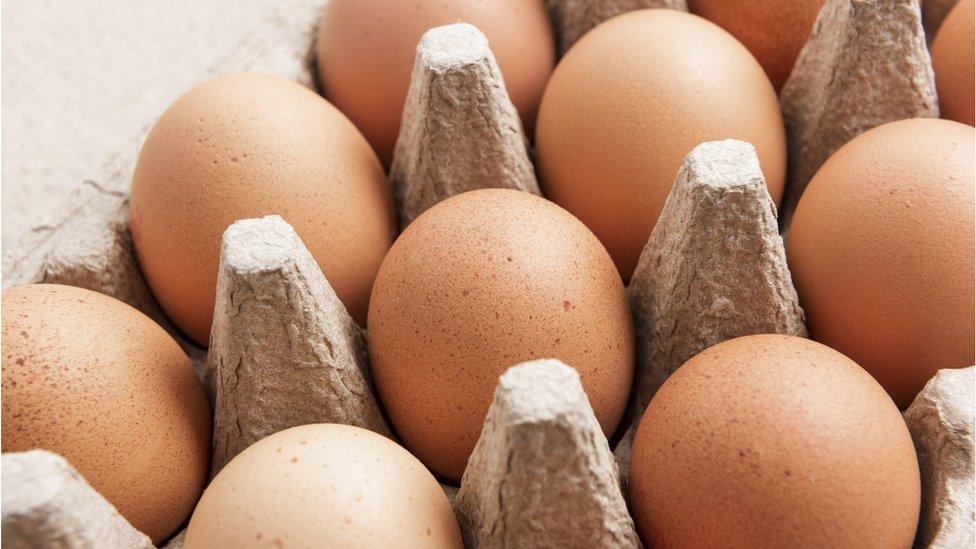Egg shortages: Warning shortfall could last another year
- Published
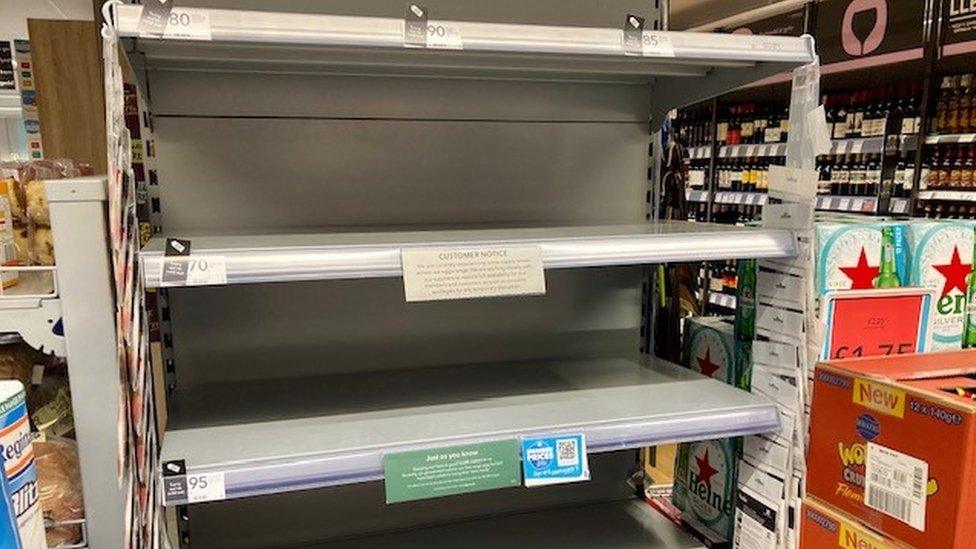
Egg shortages have been exacerbated by rising energy bills and difficulty accessing bird feed for farmers
Shoppers may see egg shortages on supermarket shelves for another year, a farmer has warned.
Llyr Jones, whose 32,000 hens supply Tesco, said factors including soaring energy prices last year meant some farmers left the industry.
He said it would take time for it to return to "normality" now farmers have started re-stocking flocks.
Farming union NFU Cymru warned that egg production "is not a simple switch on, switch off system".
Mr Jones' hens currently produce just over 31,000 eggs per day from Derwedd Farm in Llanfihangel Glyn Myfyr, Conwy.
Last year his feed bills rose from £30,000 a month to £50,000 due largely to the invasion of Ukraine, which is a major producer of the corn used for bird feed.

Llyr Jones' farm supplies eggs to supermarket giant Tesco
Mr Jones said a rise in energy bills, the outbreak of bird flu, and the desire for less caged hens have also proved obstacles.
He said the supermarkets were initially reluctant to pay farmers more for their eggs, which made some quit the industry, while others chose not to re-stock their flocks.
Mr Jones said: "A lot of farmers decided not to re-stock and that then put pressure on the market and the price of eggs was forced up.
"Now, this year, egg prices have increased for us as farmers and thankfully our costs have started to fall a bit, so we're having to recuperate the money that we lost last year."
Although farmers who decided not to re-stock were now putting in orders for new hens, getting hens back on farms takes nearly eight months and then another two months to get them producing eggs.
"So, you're nearly a year until a farmer, from when he's empty, to when he can produce eggs. Now egg prices have gone up, some farmers are buying hens in now, but those eggs won't be on the market for another year," he said.
"So, just bear with us for a bit."
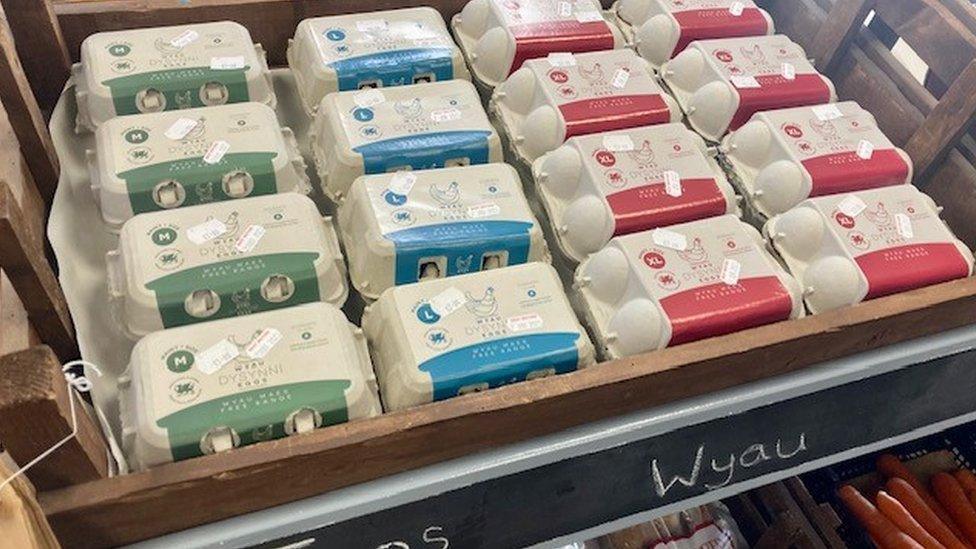
Supermarkets were said to be initially reluctant to pay farmers more for their eggs to soften the blow of rising production costs
Customers may start seeing more white eggs because some farmers replaced their flocks with white hens, he said, which are more productive than brown egg-laying hens.
But Mr Jones said customers should not notice a difference in quality or taste.
"An egg is an egg. It doesn't matter what colour it comes in," he said.
Mr Jones said that adding to a shortage was that egg consumption is growing in the UK by about 3% a year.
"We're in a cost of living crisis so eggs are one of the cheapest proteins you can buy at the moment," he said.
On Tuesday, about 70 leading members of the food industry, including farmers and supermarket bosses, met the prime minister and his colleagues to talk about how the UK can improve the way it produces and sells food.
The UK government pledged to put greater emphasis on farmers' interests in future trade deals and said it would review horticulture and egg supply chains to "ensure farmers get a fair price for their produce".
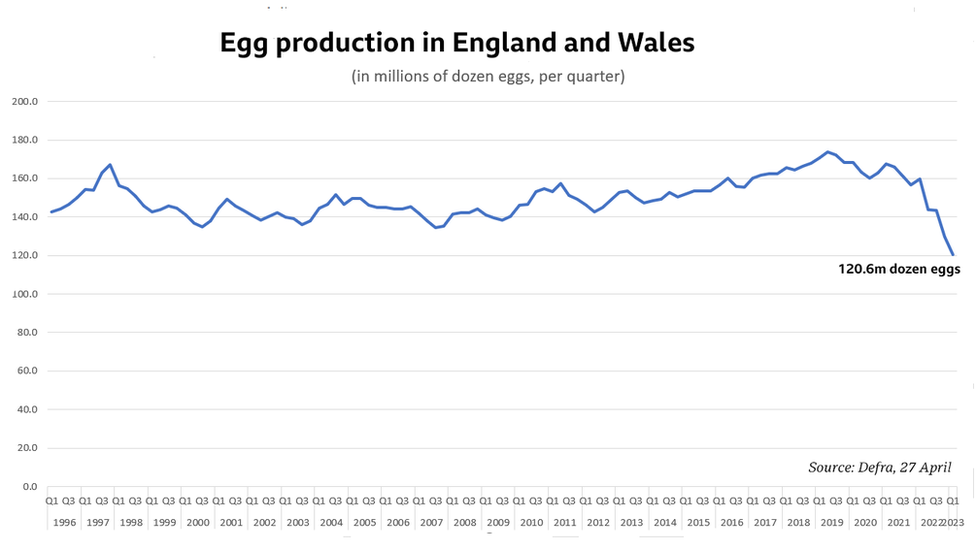
Defra figures show egg production is down by nearly a quarter on the first three months of 2022
Recent Defra figures show egg production is down by 2.9% in England in Wales in just three months - to 121 million dozen.
Production is down by nearly a quarter compared to the first three months of 2022 (24.6%).
This is the lowest amount produced on record, according to the Defra figures, which cover January to March 2023.
Meanwhile, egg imports are up 11% compared to the same period last year.
Geraint Hughes, agri-food consultant for Lafan Consulting, said: "Maybe what this has shown is the lack of flexibility within the supermarkets to react quickly to sudden increases in cost.
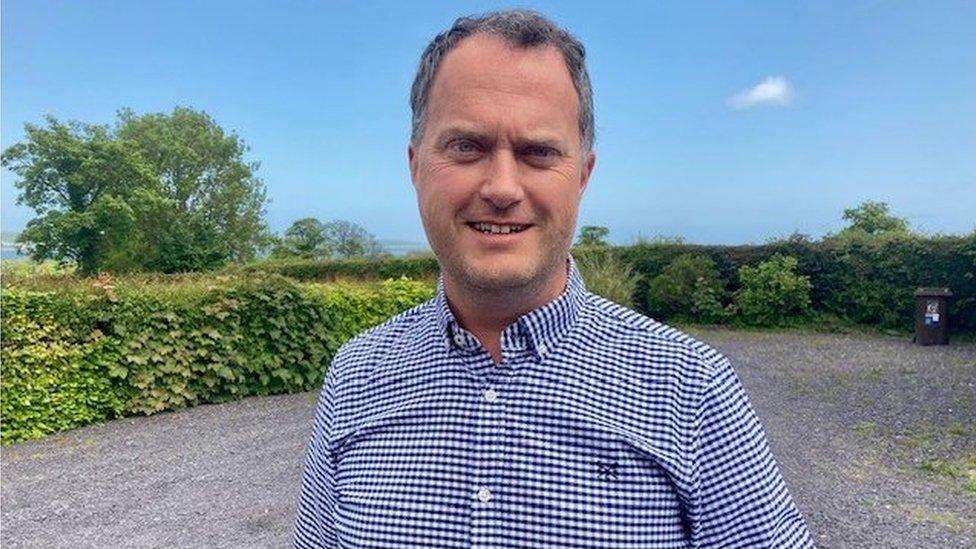
Agri-food consultant Geraint Hughes said the issue of egg shortages was nothing new
"We've had decades of small inflationary pressures in the food industry… which allowed supermarkets to do 12 month contracts. Well, now these sudden increases in costs means they should really respond within a matter of days and weeks.
"That's a big structural challenge for the industry."
Mr Hughes said part of the answer was to try and deliver policies and mechanisms to encourage shoppers to buy more local, so the industry was less reliant on "global factors".
Brendan Markland, who is on holiday on Anglesey with his son Jonathan, said they had brought eggs with them all the way from Shropshire to have for their breakfast on Tuesday morning.
"So if that doesn't tell you there's a shortage, nothing does," he said.

Margaret Hall and Sandra Hall said egg shortages were evident in Amwlch
Margaret Hall, from Amlwch, said: "In Amlwch they're very scarce. I've always lived on a farm and I always had my own chickens, so it's handy."
Her daughter-in-law Sandra Hall, said: "There's been a great shortage for some reason and we don't know why. We don't use that many, but when you need eggs you need eggs."
NFU Cymru policy adviser Dafydd Jarrett said egg producers were at the mercy of wholesalers and retailers to signal that they required their products.
"Egg production, like any food production system is not a simple switch on, switch off system," he said.
"Any disruption to primary producers in the food supply chain, as has happened recently, takes time to readjust."

COFIWCH DRYWERYN: A new podcast explores a dark and controversial chapter in Welsh history
HEART VALLEY: A day in the life of a curious Welsh shepherd

Related topics
- Published30 November 2022
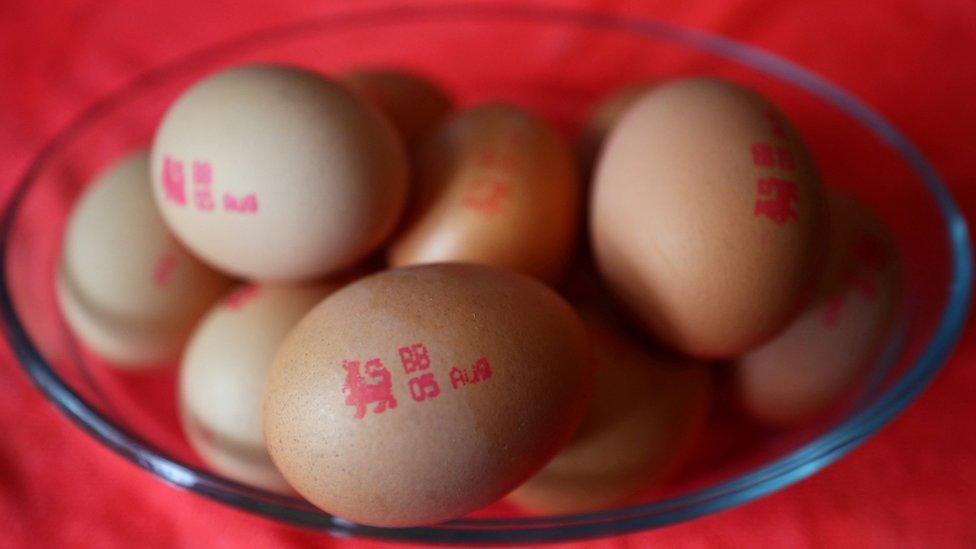
- Published28 April 2022
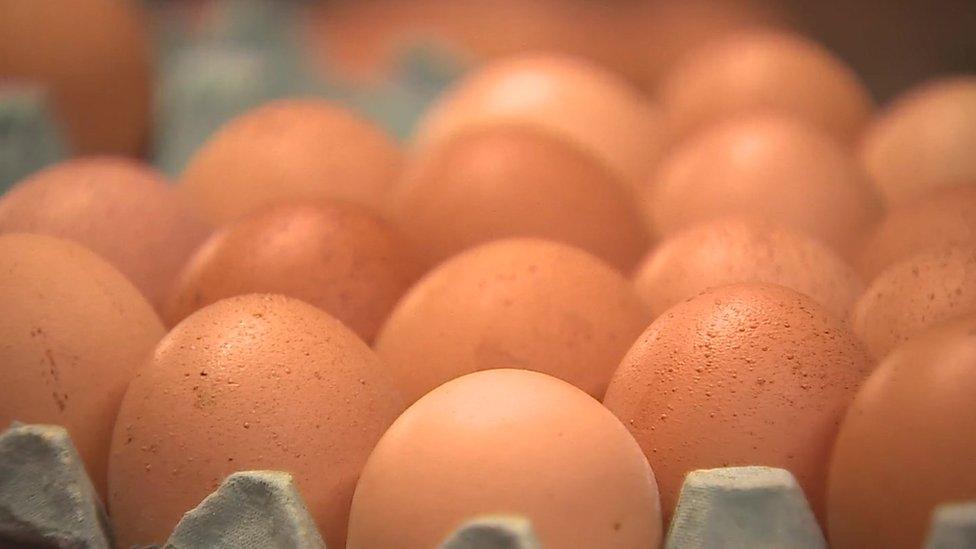
- Published16 November 2022
